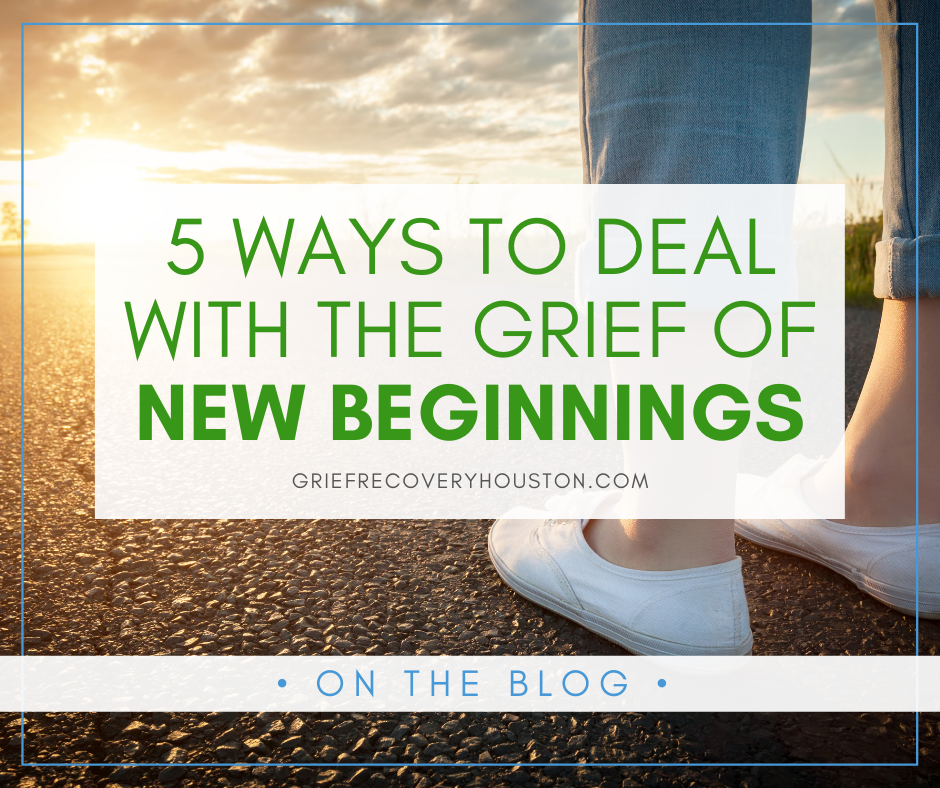- Unpacking Grief and Disability - July 8, 2024
- Breaking the Stigma: 5 Blogs to Better Understand Suicide - May 21, 2024
- 4 Tips for Better Sleep Hygiene - March 4, 2024
Grief is extremely hard to navigate. There’s so much we’re never taught about grief–especially how frequent it can be in our life, how it can come from sources other than death, and how the stages of our grief aren’t necessarily easy little steps.
And often, until we experience it, we aren’t given any tools or tips on how to manage it–and the ones we do get may come from well intentioned but less than helpful loved ones. To help, we’ve rounded up 7 of our blogs on habits and coping skills to help you navigate and manage grief when it shows up in your life.
4 Ways to Express Grief That Aren’t Just Talking About It
Finding ways to express our grief isn’t just about crisis prevention for our future selves. There are a lot of benefits that come with talking about grief; things like finding support, learning more about your own emotional processes, and lessening feelings of isolation.
But what if right now, talking about it with someone else is just too hard? How can you give your grief the care and attention it deserves while you wait to be ready to share with someone else?
32 Journal Prompts for Grieving and Loss:
Taking the time to journal regularly can be a great way to check-in with yourself and process the way you’re feeling even if you can’t process things the way you’d normally like to. There is a lot happening in the world right now, and you may feel like you can’t keep on top of it. A journal can be a helpful space to work through the confusing emotions that can come up when the world is changing rapidly. We are also encountering death on a scale we have never seen before. We are regularly breaking records for loss of life as a result of this pandemic, so more Americans than ever before are dealing with grief and the grieving process.
5 Ways Movement Can Help with Grief
Exercise is often thought of as a chore or a punishment, but moving your body can be a great way to take care of yourself. For some, reframing exercise as movement can be helpful to distinguish between the urge to change how your body looks and the urge to move your body to feel good. It’s a shame that so many people have negative experiences with exercise, because developing a regular movement practice can go a long way toward supporting your mental health in good times and in tough times, like when you’re grieving.
Benefits of Talking About Grief
Ignoring your feelings and your grief is not going to help you get to the other side of grief. One particularly helpful way to work through grief is to discuss grief. Discussing grief can be done in a professional setting, like counseling, or a more casual one, like a conversation with a friend. It can be helpful to talk to someone who cares for you and always has your back at first, so you can feel more secure that talking about had things isn’t going to make the relationship weird. It’s also helpful to find a community of other people who are experiencing grief. Finding someone else going through the same loss and supporting each other through your grief can be valuable. Other folks who are grieving will understand what you’re going through on a level that most others won’t or can’t. If there isn’t anyone you feel comfortable sharing your feelings with, try discussing them with yourself, in a journal, or even a voice memo on your phone. Sometimes the act of talking can help you untangle your thoughts and find some peace.

Self Care When Grieving
It’s more important than ever to have a solid support system in place. No one can go it alone, and it can be a great comfort to know that people have your back. You might have an idea of who is in your support system, but make sure to be realistic. Make sure your support people are folks who are actually able to help. Not the people who say “Let me know how I can help,” the people who actually show up and help or who have a proven track record of listening to you with empathy instead of judgment.
How to Help Your Child Grieve
Children tend to express their feelings through their behavior. After a loss, children may act out, or they might seek out the comfort of their normal routine, or it may be a combination. The way children grieve depends on a lot of things, like their age, their developmental stage, their personality, and their support system. Children tend to grieve in bursts, rather than a prolonged period of sadness that adults typically expect.
Common reactions to grief in childhood include feelings of depression for an extended period, anxiety, clinging to caretakers, bedwetting, dreams of the deceased, acting younger than they are, and changes in appetite and/or sleep.
The more we understand about how grieving as a child is different from grieving as an adult, the easier it will be to support your child through this difficult transition.
6 Strategies to Overcome Triggers During Your Grief Recovery
Triggers that remind you of your loss can happen anywhere and at any time. While some may be very obvious and predictable, others can hit you like a wave and knock you down. Regardless of your level of anticipation, however, grief triggers will usually leave you drained with sadness. If prolonged and untreated, grief triggers can handicap you from the necessary things you do every day, leading you to major depression and anxieties. Here are our top 6 strategies to ensure that we get through triggers of grief during our grief recovery journey.
We understand that life is too short to spend it suffering, and we’re here to help. Many people know what they should do but still find themselves struggling with all the complexities of grief. If you’ve done everything you can and are still struggling to cope with it, one of our grief recovery specialists can help facilitate healing in a safe and confidential space. We will accompany and guide you with compassion throughout the process until we find a light at the end of the tunnel.






No comments yet.